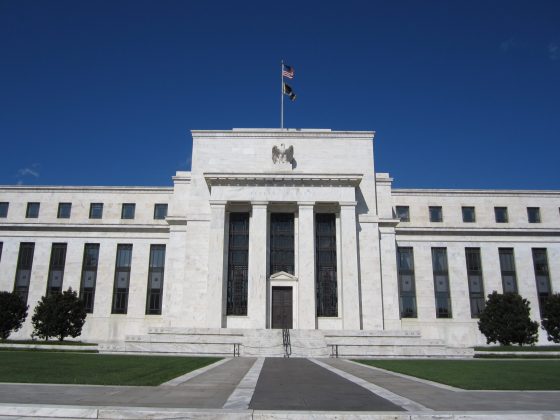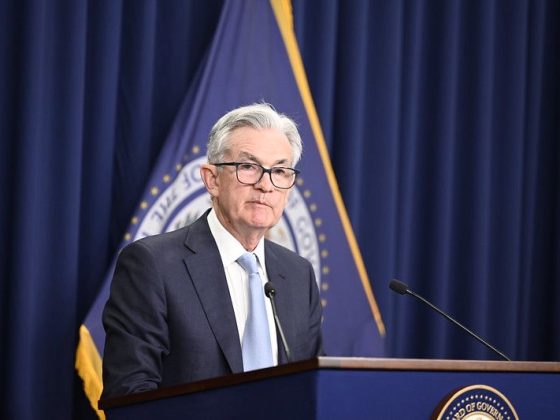Emboldened by the prospect of a friendlier Trump administration, Wall Street banks are ramping up efforts to overhaul US capital rules.
In a Reuters report, industry executives reveal an ambitious lobbying agenda, targeting reforms to the “Basel Endgame” capital rule, reductions in global bank surcharges, adjustments to leverage constraints, and revisions to the Federal Reserve’s annual stress tests.
Banks argue these regulations, enacted after the 2007-2009 financial crisis, are excessive, tying up nearly $1 trillion that could otherwise fuel the economy through lending.
Speaking during earnings on Wednesday, David Solomon, CEO of Goldman Sachs – which lobbied hard to water down Basel – said he expected the change in administration would lead to a new approach to capital rules.
It feels like we’re in an environment where there could be a constructive discussion about improving the transparency, clarity and consistency around this.
Recent wins fuel confidence
The banking sector’s confidence stems from its partial victory last year, where lobbying efforts halved the additional capital requirements under the Basel proposal.
The Federal Reserve also agreed to review its stress tests.
Buoyed by recent successes and anticipating the appointment of industry-friendly officials under Trump’s administration — including a new Federal Reserve regulatory chief arriving nearly 18 months ahead of schedule — banks view this as a rare chance to reshape capital rules, Reuters said citing industry executives who spoke on anonymity.
The executives said that after enduring years of criticism following the financial crisis, major banks believe the time for apologies has passed.
They cite their resilience during the COVID-19 pandemic and their pivotal role in stabilizing regional banks during the 2023 turmoil as evidence of their financial strength, arguing that they should no longer be subjected to overly burdensome regulations.
Speaking during earnings on Wednesday, JPMorgan CGO Jeremy Barnum, said,
All we want is a coherent, rational, holistically assessed regulatory framework that allows a bank to do their job supporting the economy that isn’t reflexively anti-bank…The hope is that we get some of that.
Legal and political shifts strengthen banks’ position
Adding to Wall Street’s momentum is a judiciary increasingly skeptical of overreaching regulators.
A Supreme Court ruling in June overturned a precedent requiring courts to defer to agency interpretations of ambiguous laws.
This evolving legal landscape, acknowledged by the Fed in its stress test review, gives banks more leverage to push for reforms.
“The pendulum swings back and forth in terms of who has more power,” said Ed Mills, Washington policy analyst at Raymond James.
“That pendulum has now swung back to the banks. This is a shift that is about 15 years in the making.”
Lobbying targets weaker Basel rules and lower surcharges
One major focus for banks is weakening the Basel Endgame rules, which overhaul risk assessment frameworks.
The Fed’s regulatory chief Michael Barr previously suggested that revisions could increase capital requirements by 9%, down from the original 19%.
However, banks aim to bring this figure closer to zero, sources said.
Banks largely agree that it is preferable to solidify a weaker rule under Trump’s administration rather than risk regulators shelving the project, which could lead to a future Democratic administration reinstating a stricter version, according to sources.
At a conference last month, Bank of America CEO Brian Moynihan emphasized that regulators should finalize the Basel framework with minimal impact rather than “leave it open.”
In addition, Wall Street is lobbying to lower the $230 billion capital surcharge levied on globally systemic banks (GSIBs) and adjust the supplementary leverage ratio (SLR).
The SLR currently requires banks to hold capital against all investments, regardless of risk. Banks want super-safe assets like U.S Treasuries exempted from these calculations.
The Federal Reserve’s annual stress tests, designed to assess a bank’s resilience to economic shocks, have long been a point of contention.
Banks have criticized the tests for being opaque and overly stringent.
Last year, the Fed announced a review of these tests. However, banks are simultaneously pursuing legal action to increase their transparency, signaling the high stakes attached to this regulatory tool.
Regulatory leadership changes bolster banks
The industry’s optimism is further buoyed by changes in regulatory leadership.
Republican Fed governor Michelle Bowman, a critic of Michael Barr’s capital framework, is a strong contender to replace him as the Fed’s regulatory chief.
Similarly, Travis Hill, poised to become the acting Federal Deposit Insurance Corporation (FDIC) chair, supports expanding Basel reforms to address additional capital issues.
With these appointments, banks see an opportunity to cement a more pragmatic regulatory environment.
While Wall Street’s lobbying gains momentum, some regulators remain cautious.
In an interview with Reuters, acting Comptroller of the Currency Michael Hsu, a top bank regulator, said it was reasonable to question how capital is allocated, but that the overall amount in the system “is about right.”
“On a case-by-case…you turn all the dials down, and then you zoom out and you say ‘uh-oh we’ve ended up with a much weaker system’,” Hsu warned.
The post Trump era sparks hopes for looser capital rules among Wall Street banks appeared first on Invezz


